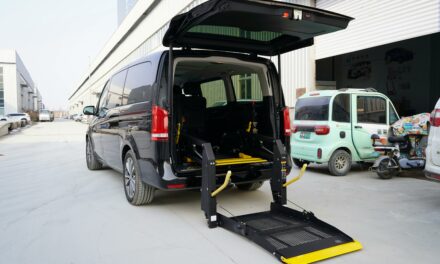Overview of Business Vehicle Insurance
Definition and Purpose of Business Vehicle Insurance
Business vehicle insurance is a specialized type of insurance coverage designed to protect companies and their assets from financial loss resulting from accidents involving vehicles used for business purposes. This insurance provides coverage for vehicles owned or leased by a company, as well as for vehicles not owned but used for business activities, such as employee-owned cars used for work-related tasks.
The primary purpose of business vehicle insurance is to mitigate the risks associated with operating a fleet of vehicles for business operations. It helps safeguard companies against the costs related to vehicle damage, theft, liability claims, and injuries resulting from accidents. By having the appropriate insurance coverage in place, businesses can protect their finances, assets, and reputation in the event of unforeseen circumstances on the road.
Business vehicle insurance is essential for companies of all sizes and industries that rely on vehicles to conduct their operations. Whether a business owns a single company car or manages a large fleet of commercial vehicles, having the right insurance coverage is crucial for ensuring financial security and compliance with legal requirements.
In summary, business vehicle insurance serves as a critical risk management tool for companies, providing the necessary protection and peace of mind to focus on core business activities without being unduly burdened by the potential liabilities associated with vehicle operations.
Importance of Business Vehicle Insurance for Companies
Business vehicle insurance plays a crucial role in safeguarding companies from potential financial losses and liabilities associated with operating a business fleet. For companies that rely on vehicles for their daily operations, having the appropriate insurance coverage can provide a sense of security and protection in the event of unforeseen circumstances.
One of the key reasons why business vehicle insurance is essential for companies is that it helps mitigate the risks associated with operating a fleet of vehicles. Whether it’s delivery trucks, service vehicles, or company cars, these vehicles are exposed to various risks on the road, including accidents, theft, vandalism, and natural disasters. Without adequate insurance coverage, companies could face substantial financial burdens in repairing or replacing damaged vehicles, as well as covering medical expenses and legal fees in case of accidents.
Moreover, business vehicle insurance is not just about protecting the vehicles themselves; it also extends to safeguarding the business as a whole. Liability coverage included in business vehicle insurance can protect companies from potential lawsuits and claims arising from accidents caused by their vehicles. In the litigious environment of today’s business world, having the right insurance coverage can mean the difference between surviving a lawsuit or facing financial ruin.
Furthermore, many business vehicle insurance policies offer additional benefits that can help companies maintain their operations even in challenging situations. For example, some policies may include coverage for rental vehicles or towing services, ensuring that companies can quickly get back on the road after an accident or breakdown. Additionally, some insurance providers offer roadside assistance and emergency support, which can be invaluable for businesses that rely on their vehicles to meet their customers’ needs.
In essence, the importance of business vehicle insurance for companies cannot be overstated. It not only provides financial protection and peace of mind but also helps companies fulfill their legal obligations and maintain their reputation in the market. By investing in comprehensive business vehicle insurance, companies can focus on growing their business without worrying about the potential risks associated with operating a fleet of vehicles.
Types of Business Vehicle Insurance
Commercial Auto Insurance
Coverage for company-owned vehicles
Commercial auto insurance is a crucial component of business vehicle insurance, providing coverage for vehicles owned by the company. This type of insurance is designed to protect businesses from financial loss in case of accidents, theft, or damage to company-owned vehicles. Commercial auto insurance typically includes coverage for physical damage, liability for bodily injury or property damage caused by company vehicles, and medical payments for injuries sustained in a covered accident.
One key aspect of commercial auto insurance is property damage coverage, which helps pay for repairs or replacement of company vehicles damaged in accidents, vandalism, or natural disasters. This coverage is essential for companies that rely on vehicles for their daily operations, ensuring that any unforeseen damages do not disrupt business activities.
Moreover, liability protection is a critical component of commercial auto insurance, offering coverage for claims and lawsuits arising from accidents where the company’s vehicle is at fault. This coverage can help businesses handle legal expenses, settlements, or judgments resulting from bodily injury or property damage caused by their vehicles.
By having commercial auto insurance, companies can safeguard their assets and financial stability in the event of vehicle-related incidents. It provides a level of security and peace of mind for businesses, allowing them to focus on their core operations without worrying about the potential risks associated with owning and operating vehicles.

Liability protection for business operations
Commercial auto insurance plays a crucial role in providing liability protection for business operations. This type of insurance coverage shields companies from financial loss in case they are held responsible for accidents involving their vehicles. Liability protection under commercial auto insurance typically includes coverage for bodily injury and property damage caused to others in an accident where the business vehicle is at fault.
In the event of a lawsuit or legal claims arising from an accident involving a company-owned vehicle, commercial auto insurance can cover legal fees, court costs, and settlements up to the policy’s limits. This protection is essential for businesses, as it can help prevent severe financial repercussions that may arise from accidents and legal liabilities.
Moreover, commercial auto insurance not only protects the company but also provides peace of mind to employees who drive these vehicles for work purposes. Knowing that there is liability coverage in place can boost employee morale and confidence while performing their job responsibilities, especially if they are involved in accidents during work-related activities.
In summary, liability protection offered by commercial auto insurance is a fundamental component for businesses that rely on vehicles for their operations. It serves as a safety net against potential financial losses and legal liabilities, ensuring that companies can continue their business operations smoothly even in the face of unforeseen accidents.
Hired and Non-Owned Auto Insurance
Coverage for vehicles not owned by the company but used for business purposes
Hired and non-owned auto insurance is a crucial component of business vehicle insurance, providing coverage for vehicles that are not owned by the company but are utilized for business purposes. This type of insurance offers protection against liability claims that may arise from accidents or incidents involving these vehicles.
Businesses often rent or lease vehicles for various reasons, such as transporting goods, making deliveries, or attending client meetings. In such cases, the company may not own the vehicles but still requires insurance coverage to mitigate risks associated with using them for business operations.
Hired auto insurance typically covers vehicles that are rented or hired by the company for short-term use. This coverage can include liability protection in case of accidents, damage to the rented vehicle, and medical expenses for injuries sustained in an accident involving the rented vehicle.
Non-owned auto insurance, on the other hand, provides coverage for vehicles that are used for business purposes but are not owned by the company. For example, if an employee uses their personal vehicle for work-related tasks and is involved in an accident, non-owned auto insurance can help cover liability claims and protect the company from financial losses.
Both hired and non-owned auto insurance are essential for businesses that rely on vehicles that are not part of their owned fleet. By securing this type of coverage, companies can safeguard themselves against potential liabilities and ensure that their operations are protected in the event of unforeseen accidents or incidents involving hired or non-owned vehicles.
Protection against liability claims
Hired and non-owned auto insurance provides coverage for vehicles that are not owned by the company but are used for business purposes. This type of insurance specifically protects the company from liability claims that may arise from accidents or damages caused by these non-owned vehicles while being used for business operations.
For example, if an employee gets into an accident while driving a rented vehicle for a work-related task, the hired and non-owned auto insurance would cover the costs associated with any bodily injury or property damage claims brought against the company. This coverage is crucial as it can help protect the company’s assets and finances in situations where non-owned vehicles are involved in accidents or incidents during business activities.
Furthermore, hired and non-owned auto insurance can also provide coverage for legal fees and settlements in case the company is sued due to an accident involving a non-owned vehicle used for business purposes. Without this type of insurance, a company could be at risk of facing significant financial liabilities and legal challenges resulting from accidents caused by non-owned vehicles.
Overall, having hired and non-owned auto insurance as part of a comprehensive business vehicle insurance strategy is essential for companies that rely on vehicles not owned by the business for their operations. It offers a layer of protection against potential liability claims and helps safeguard the company’s financial stability in unforeseen circumstances involving non-owned vehicles used in the course of business activities.
Factors Influencing Business Vehicle Insurance Rates
Type of Business and Industry
The type of business and industry play a significant role in determining business vehicle insurance rates. Insurance companies assess the nature of the business and the industry it operates in to gauge the level of risk involved. Some industries inherently carry more risks than others, which can impact insurance premiums.
For example, a construction company that frequently transports heavy equipment and operates in high-traffic areas may face higher insurance rates compared to a consulting firm with employees who mainly drive to and from office locations. The insurance company considers the likelihood of accidents or damage based on the specific activities and operations of the business.
Additionally, the type of business vehicles used can influence insurance rates. Vehicles with a higher value or those that require specialized training to operate may incur higher premiums due to the increased cost of repair or replacement. The frequency and distance of travel, as well as the areas where the vehicles are driven, are also factors that insurers take into account when determining rates.
Furthermore, the usage of the vehicles can impact insurance costs. Vehicles used for delivery services, transportation of passengers, or hauling goods may face higher premiums due to the increased exposure to potential accidents or liabilities.
In summary, the type of business and industry, along with the specific use of vehicles, are key factors that insurance companies consider when calculating business vehicle insurance rates. It is essential for businesses to provide accurate information about their operations to insurers to ensure they have the appropriate coverage at a competitive rate.
Number of Vehicles and Drivers
The number of vehicles and drivers within a company’s fleet is a significant factor that influences business vehicle insurance rates. Insurers consider the size of the fleet when determining the overall risk profile of the business and calculating premiums. Here are some key points to understand how the number of vehicles and drivers impacts insurance rates:
-
Risk Assessment: Insurance companies assess the number of vehicles and drivers in a company’s fleet to evaluate the level of risk associated with insuring the business. A larger fleet typically implies a higher exposure to potential accidents and claims, which can affect the cost of insurance coverage.
-
Driving Records: The driving records of all drivers within the company’s fleet are crucial factors in determining insurance rates. Insurers look at the collective driving history of all drivers to assess the overall risk. A fleet with multiple drivers with poor driving records may face higher insurance premiums due to increased risk.
-
Vehicle Utilization: The frequency and purpose of vehicle use also play a role in insurance pricing. A larger number of vehicles may indicate that the fleet is in use more frequently, increasing the likelihood of accidents. Insurers may adjust rates based on how often and for what purposes the vehicles are used.
-
Safety Measures: Companies with multiple vehicles and drivers can potentially implement more robust safety measures and training programs. Insurers may offer discounts on premiums for fleets that prioritize safety, driver training, and regular vehicle maintenance.
-
Policy Customization: Depending on the size of the fleet, insurers may offer tailored insurance solutions to meet the specific needs of the business. Companies with a large number of vehicles may benefit from customized policies that provide comprehensive coverage across the entire fleet.
-
Bundling Discounts: Insuring a larger number of vehicles and drivers with the same insurance provider may make the business eligible for bundling discounts. Consolidating coverage for the entire fleet with one insurer could result in cost savings through discounted premiums.
-
Claims History: The claims history of a company’s fleet, including the frequency and severity of past claims, can influence insurance rates. A history of accidents or claims may lead to higher premiums, regardless of the number of vehicles and drivers.
In conclusion, the number of vehicles and drivers in a company’s fleet is a fundamental factor in determining business vehicle insurance rates. By understanding how insurers assess risk based on fleet size and taking steps to mitigate risks through safety measures and driver training, businesses can effectively manage insurance costs while ensuring adequate coverage for their operations.
Driving History and Safety Record
Driving history and safety record play a significant role in determining business vehicle insurance rates. Insurance companies assess the risk associated with insuring a business based on the driving records of the drivers covered under the policy. A clean driving history with no accidents or traffic violations indicates responsible and safe driving practices, which can result in lower insurance premiums.
On the other hand, a poor driving record with past incidents such as accidents, speeding tickets, or DUI convictions can lead to higher insurance rates. Insurance providers view such drivers as high-risk and are more likely to file claims in the future, which increases the overall cost of insuring the business vehicles.
Moreover, businesses that prioritize safety measures and implement training programs to educate their drivers on safe driving practices can potentially lower their insurance premiums. Proactive measures to reduce the risk of accidents and claims demonstrate the company’s commitment to maintaining a safe working environment and protecting its assets.
Therefore, maintaining a good driving history and promoting a culture of safety within the organization can positively influence business vehicle insurance rates, ultimately saving the company money on insurance premiums. It is essential for businesses to emphasize the importance of safe driving practices to not only ensure the well-being of their employees but also to mitigate financial risks associated with high insurance costs.
Coverage Limits and Deductibles
Coverage limits and deductibles play a significant role in determining the rates for business vehicle insurance. Coverage limits refer to the maximum amount an insurance policy will pay out for a covered claim. Deductibles, on the other hand, are the out-of-pocket expenses that a policyholder must pay before the insurance coverage kicks in.
Higher coverage limits typically result in higher insurance premiums. This is because the insurance company is taking on more risk by agreeing to pay out larger amounts in the event of a claim. Companies that opt for lower coverage limits may pay lower premiums, but they also expose themselves to greater financial risk if an accident or other covered event occurs.
Similarly, the choice of deductibles can impact insurance rates. A deductible is the portion of a claim that the policyholder agrees to pay before the insurance coverage applies. Higher deductibles usually lead to lower premiums because the policyholder is taking on more of the financial risk in the event of a claim.
When setting coverage limits and deductibles for business vehicle insurance, companies need to strike a balance between managing costs and ensuring adequate protection. It’s essential to assess the specific needs and risks of the business to determine the appropriate coverage levels. Working with an experienced insurance agent or broker can help companies navigate these decisions and find a policy that meets their requirements while staying within budget constraints.
Benefits of Business Vehicle Insurance
Financial Protection
Coverage for vehicle damage and theft
Business vehicle insurance provides essential financial protection for companies by offering coverage for vehicle damage and theft. This aspect of the insurance policy ensures that businesses are safeguarded against the costs associated with repairing or replacing vehicles that are involved in accidents, vandalized, or stolen.
In the event of a car accident, the insurance helps cover the expenses of repairing the company-owned vehicles. This coverage can be crucial for businesses, especially those that rely on their vehicles for daily operations. By having insurance that takes care of these repair costs, companies can avoid significant financial burdens that could otherwise impact their bottom line.
Moreover, business vehicle insurance also protects against theft. If a company vehicle is stolen, the insurance can help cover the cost of replacing the vehicle, minimizing the financial impact on the business. This coverage ensures that companies can recover more quickly from such incidents and continue their operations without facing excessive financial strain.
Additionally, having liability protection in case of accidents is another key component of financial protection offered by business vehicle insurance. In situations where the company is deemed responsible for causing injury or property damage while using company vehicles, the insurance can cover legal fees, settlements, and other costs associated with liability claims.
Overall, the financial protection provided by business vehicle insurance is vital for companies of all sizes. By securing coverage for vehicle damage, theft, and liability, businesses can mitigate financial risks and ensure continuity in their operations, even in the face of unexpected events.
Liability protection in case of accidents
Liability protection in case of accidents is a crucial benefit of business vehicle insurance for companies. Accidents can happen unexpectedly, and when a company-owned vehicle is involved, the potential for liability claims is significant. Business vehicle insurance provides coverage for bodily injury and property damage that a company may be legally responsible for as a result of an accident involving one of its vehicles.
Without adequate liability protection, a company could face substantial financial losses from legal expenses, medical bills, property damage costs, and potential settlement or judgment amounts. Business vehicle insurance helps mitigate these risks by providing coverage for legal defense costs and settlement payments up to the policy limits.
Moreover, liability protection extends beyond the company itself to encompass employees who may be driving the vehicles for business purposes. In the event of an accident, the insurance coverage can also offer protection for the driver, passengers, and any third parties involved, helping to safeguard both the company’s assets and its reputation.
By having liability protection in place through business vehicle insurance, companies can operate with more confidence, knowing that they have a safety net in place to handle the financial ramifications of accidents and minimize the impact on their bottom line. It is a proactive measure that can help businesses navigate unforeseen circumstances and protect their interests in the event of liability claims arising from accidents involving their commercial vehicles.
Legal Compliance
Meeting state and federal insurance requirements
Meeting state and federal insurance requirements is a crucial aspect of business vehicle insurance. These requirements are in place to ensure that companies operating vehicles for business purposes have the necessary insurance coverage to protect themselves and others in case of accidents. By complying with these regulations, companies can avoid fines, penalties, and legal issues that may arise from being underinsured or uninsured.
State laws typically mandate minimum levels of liability insurance coverage for businesses that operate vehicles. This coverage helps pay for damages and injuries caused to others in an accident where the insured party is at fault. Failing to meet these minimum requirements can result in fines, license suspensions, or even legal action against the company.
Similarly, federal regulations may also apply, especially for companies involved in interstate commerce or transportation. The Federal Motor Carrier Safety Administration (FMCSA) requires specific insurance coverage for commercial motor vehicles, including trucks and buses, based on factors such as the type of cargo being transported and the vehicle’s weight.
By ensuring compliance with state and federal insurance requirements, businesses can demonstrate their commitment to responsible operations and risk management. It also provides a level of financial protection that is essential in the event of accidents or legal claims related to the use of company vehicles. Working with an insurance provider that understands these regulatory requirements can help companies navigate the complexities of business vehicle insurance and stay in good standing with the law.
Avoiding fines and penalties
Avoiding fines and penalties is a crucial aspect of maintaining legal compliance when it comes to business vehicle insurance. Failing to have the required insurance coverage for company-owned vehicles can result in significant consequences for businesses.
One of the primary benefits of business vehicle insurance is that it helps companies meet state and federal insurance requirements. By ensuring that all vehicles used for business purposes are adequately insured, organizations can avoid legal troubles and potential fines. Operating without the necessary insurance coverage not only puts the company at financial risk in the event of an accident but also leaves it vulnerable to legal repercussions.
Furthermore, having the appropriate business vehicle insurance in place can help companies steer clear of penalties that may arise from non-compliance with insurance regulations. State laws mandate specific minimum insurance requirements for businesses operating vehicles, and failure to adhere to these guidelines can lead to penalties such as fines, license suspensions, or even legal action.
In essence, by investing in comprehensive business vehicle insurance, companies can proactively protect themselves from the legal pitfalls associated with non-compliance. This not only safeguards the financial interests of the organization but also upholds its reputation and credibility within the industry. Ultimately, avoiding fines and penalties through proper insurance coverage is a proactive and prudent strategy for businesses looking to operate responsibly and sustainably.
Tips for Choosing Business Vehicle Insurance
Assessing Business Needs and Risks
When it comes to choosing business vehicle insurance, assessing your company’s specific needs and risks is crucial. Understanding the nature of your business operations and the unique challenges it may face on the road will help you tailor the right insurance coverage to protect your assets adequately.
Start by evaluating the types of vehicles your business uses and how they are utilized in your day-to-day operations. Consider the number of vehicles in your fleet and the specific purposes they serve. For example, a construction company with heavy-duty trucks will have different insurance requirements than a real estate agency with a few sedans for client meetings.
Next, assess the potential risks associated with your business activities. This includes factors such as the frequency of vehicle use, the driving conditions your employees encounter, and the likelihood of accidents based on your industry. A delivery service operating in urban areas may face higher risks than a consulting firm with employees who primarily work from home.
It’s also essential to consider the number of employees authorized to drive company vehicles and their driving records. A history of accidents or traffic violations among your drivers can impact insurance premiums, so be sure to assess this risk factor as part of your insurance evaluation process.
Furthermore, take into account any specific coverage requirements mandated by state laws or industry regulations. Understanding the minimum insurance requirements for your business operations will ensure compliance and avoid potential legal issues down the line.
By conducting a thorough assessment of your business needs and risks, you can make more informed decisions when selecting business vehicle insurance. This proactive approach will not only help you choose the right coverage for your company but also mitigate potential financial losses in the event of unforeseen accidents or incidents on the road.
Comparing Quotes from Different Insurers
When seeking business vehicle insurance, comparing quotes from different insurers is a crucial step in finding the most suitable coverage for your company’s needs. Here are some tips to consider when comparing quotes:
-
Request Multiple Quotes: Reach out to several insurance providers to gather a range of quotes. Different insurers may offer varying coverage options and pricing, so obtaining multiple quotes allows you to compare and make an informed decision.
-
Compare Coverage Options: Evaluate the coverage options offered by each insurer. Ensure that the policy provides adequate protection for your business vehicles, drivers, and operations. Look for comprehensive coverage that addresses your specific risks and requirements.
-
Review Policy Limits and Deductibles: Examine the policy limits and deductibles outlined in each quote. Consider whether the coverage limits align with your business’s assets and potential liabilities. A higher deductible may lower your premiums, but make sure it is a financially viable option for your company.
-
Consider Additional Benefits: In addition to standard coverage, inquire about any additional benefits or endorsements that insurers may offer. These could include roadside assistance, rental vehicle coverage, or coverage for electronic equipment in your vehicles. Assess whether these extras are valuable to your business.
-
Check Insurer’s Reputation: Research the reputation and financial stability of the insurance companies providing quotes. Look into customer reviews, ratings, and any feedback on their claims process. Opting for a reputable insurer with a history of prompt and fair claims handling can provide peace of mind.
-
Evaluate Customer Service: Consider the level of customer service each insurer offers. Assess how responsive and helpful their representatives are when answering your questions and providing information. Good customer service can be essential when managing your policy or filing a claim.
-
Understand Policy Terms: Thoroughly review the terms and conditions of each insurance policy to understand what is covered, any exclusions, and the claims process. Ensure that you are comfortable with the policy terms before making a decision.
-
Seek Professional Advice: If you are unsure about which policy to choose or need assistance in understanding insurance jargon, consider consulting with an insurance broker or agent. They can help you navigate the complexities of insurance policies and provide tailored recommendations based on your business needs.
By carefully comparing quotes from different insurers and considering these tips, you can select the most suitable business vehicle insurance policy that offers adequate protection for your company’s vehicles and operations.
Reviewing Coverage Options and Policy Terms
When it comes to choosing the right business vehicle insurance, reviewing coverage options and policy terms is a crucial step in ensuring that your company is adequately protected. Here are some key points to consider when reviewing coverage options and policy terms:
-
Coverage Details: Understand the specific coverage offered by the policy. This includes coverage for vehicle damage, liability protection, medical payments, and coverage for uninsured or underinsured motorists. Ensure that the policy covers all potential risks that your business vehicles may face.
-
Policy Limits: Pay attention to the limits of coverage provided by the policy. Make sure that the limits are sufficient to protect your company in case of a major accident or loss. Consider factors such as the value of your vehicles, the nature of your business operations, and the potential costs of legal claims.
-
Deductibles: Review the deductibles associated with the policy. A deductible is the amount that you are responsible for paying out of pocket before the insurance coverage kicks in. Higher deductibles typically result in lower insurance premiums, but make sure that you can afford the deductible amount if you need to make a claim.
-
Exclusions: Take note of any exclusions listed in the policy. Exclusions are specific situations or events that are not covered by the insurance policy. Make sure you understand what is not covered so that you can take steps to mitigate those risks if necessary.
-
Policy Terms and Conditions: Carefully read and understand the terms and conditions of the policy. Pay attention to details such as the policy period, renewal terms, cancellation policies, and any special provisions that may apply to your business. Make sure you are comfortable with all the terms before signing the policy.
-
Additional Coverage Options: In addition to standard coverage options, inquire about any additional coverage options that may be available to enhance your protection. This could include coverage for rental vehicles, roadside assistance, or coverage for electronic equipment and tools carried in the vehicles.
-
Review Regularly: Business needs and risks can change over time, so it’s important to review your coverage options and policy terms regularly. As your business grows or diversifies, you may need to adjust your insurance coverage to ensure continued protection.
By carefully reviewing coverage options and policy terms when choosing business vehicle insurance, you can make informed decisions that best meet the needs of your company and provide adequate protection in case of unforeseen events.
Claims Process for Business Vehicle Insurance
Reporting an Accident or Damage
In the unfortunate event of an accident or damage involving a business vehicle, the claims process for business vehicle insurance is a crucial step in ensuring a smooth resolution and getting back on track with operations. The first step in this process is promptly reporting the incident to the insurance company.
When reporting an accident or damage, it is essential to provide detailed and accurate information about the incident. This includes the date, time, and location of the event, as well as a description of what happened. It is also important to provide any relevant documentation, such as photos of the damage, police reports (if applicable), and contact information of any other parties involved.
By promptly reporting the incident to the insurance company, you can initiate the claims process and begin the necessary steps to assess the damage, determine coverage, and proceed with the claim. It is important to follow the instructions provided by the insurance company and cooperate fully to expedite the process.
Documenting the incident thoroughly is key to supporting your claim and ensuring that all relevant information is accounted for. Keep track of all communication with the insurance company, including claim numbers, adjuster contacts, and any forms or documents provided. This documentation can help streamline the process and provide clarity on the status of your claim.
Working closely with the insurance company throughout the claims process is essential to resolving the situation efficiently. Be prepared to answer any questions, provide additional information if needed, and adhere to any deadlines or requirements set forth by the insurer. By maintaining open communication and cooperation, you can help facilitate a timely resolution and get your business vehicle back on the road.

Documenting the Incident
Documenting the incident is a crucial step in the claims process for business vehicle insurance. Proper documentation helps ensure that the insurance claim is processed smoothly and accurately. Here are some key points to consider when documenting an incident involving a business vehicle:
-
Record Details: As soon as an incident occurs, it is essential to record all relevant details. This includes the date, time, and location of the accident, contact information of all parties involved, and any witnesses present.
-
Take Photos: If possible, take photographs of the accident scene, any damage to vehicles, and any visible injuries. Visual documentation can provide valuable evidence to support your insurance claim.
-
File a Police Report: In case of a significant accident, it is advisable to contact the police and file a report. The police report can serve as an official document detailing the incident and can support your insurance claim.
-
Gather Documentation: Collect all relevant documentation related to the incident, such as insurance information of the parties involved, driver’s license details, vehicle registration, and any medical reports if there are injuries.
-
Document Expenses: Keep a record of any expenses incurred as a result of the incident, such as towing costs, rental vehicle expenses, or medical bills. These expenses may be covered under your business vehicle insurance policy.
-
Communicate with the Insurance Company: Once you have documented the incident, notify your insurance company promptly. Provide them with all the necessary documentation and cooperate with any investigation or evaluation process they may require.
-
Keep Detailed Notes: Throughout the claims process, maintain detailed notes of all communication with the insurance company, including phone calls, emails, and in-person meetings. This documentation can help track the progress of your claim and ensure that all necessary steps are taken.
-
Follow Instructions: Follow any instructions provided by the insurance company carefully. This may include providing additional documentation, scheduling vehicle inspections, or obtaining repair estimates.
By documenting the incident thoroughly and following the necessary steps, you can help facilitate a smooth and efficient claims process for your business vehicle insurance. Proper documentation is key to ensuring that you receive the coverage and compensation you are entitled to in the event of an accident or damage to your business vehicle.
Working with the Insurance Company to Process the Claim
Once you have reported an accident or damage to your insurance company and documented all the necessary details, the next step in the claims process is working with the insurance company to process the claim efficiently and effectively.
-
Cooperation and Communication: It is essential to maintain open communication with your insurance company throughout the claims process. Be responsive to any requests for information or documentation to ensure the timely processing of your claim. Providing accurate and detailed information will help expedite the evaluation and settlement of your claim.
-
Claims Adjuster: The insurance company will assign a claims adjuster to investigate the incident, assess the damage, and determine the coverage and benefits under your policy. Cooperate with the claims adjuster by providing access to the vehicle, relevant documents, and any other information they require to evaluate the claim.
-
Estimates and Repairs: Depending on the extent of the damage to your vehicle, the insurance company may require repair estimates from authorized repair shops. Follow the guidelines provided by your insurer when selecting a repair facility to ensure that the repairs are done properly and in accordance with your policy coverage.
-
Approval and Settlement: Once the claims adjuster has completed their investigation and reviewed all relevant information, they will provide you with a settlement offer based on the terms of your policy. Review the offer carefully, and if you agree with the settlement, provide the necessary authorization to proceed with the repairs or reimbursement.
-
Disputes and Resolutions: In cases where there are disagreements regarding the settlement offer or the handling of the claim, you have the right to appeal or dispute the decision with the insurance company. Provide any additional information or evidence to support your case and work towards a resolution through negotiation or mediation.
-
Claim Completion: Once the repairs have been completed, or the settlement has been accepted and processed, ensure that you receive all necessary documentation and confirmation of the claim closure from the insurance company. Review the final settlement statement to verify that all covered expenses have been accounted for accurately.
By actively engaging with the insurance company, providing timely information, and following the claims process diligently, you can facilitate a smooth and efficient resolution of your business vehicle insurance claim. Remember to keep all relevant records and correspondence related to the claim for your records and future reference.
Case Studies or Examples of Business Vehicle Insurance in Action
Real-life examples of how business vehicle insurance protected companies

Business vehicle insurance plays a crucial role in protecting companies from financial losses and liabilities in case of accidents or damages involving their vehicles. Real-life examples highlight the significance of having adequate insurance coverage for business vehicles.
One such case study involves a construction company that relied heavily on a fleet of trucks and vans to transport equipment and materials to various job sites. Despite implementing strict safety protocols and providing training to their drivers, accidents can still occur unexpectedly. In one instance, a company vehicle was involved in a collision with another vehicle, resulting in significant damage to both vehicles and causing injuries to the occupants.
Thanks to their comprehensive commercial auto insurance policy, the construction company was able to cover the costs of repairing their vehicle and the damages to the other party’s vehicle. The liability protection included in their insurance policy also helped mitigate the potential legal costs associated with the accident, including medical expenses and legal fees.
In another scenario, a small business owner who operated a catering service experienced a break-in where their delivery van was stolen. Without business vehicle insurance, the financial burden of replacing the stolen vehicle would have been detrimental to the company’s operations. However, with the right insurance coverage in place, the business owner was able to file a claim and receive compensation to purchase a new vehicle, ensuring minimal disruption to their services.
These case studies underscore the invaluable protection that business vehicle insurance offers to companies of all sizes and industries. Whether it is covering repair costs for damaged vehicles, addressing liability claims arising from accidents, or providing financial support in the event of theft or vandalism, business vehicle insurance serves as a vital safeguard for businesses operating on the road.
Lessons learned from specific scenarios
In a specific scenario involving a catering company, the importance of having comprehensive business vehicle insurance became evident. The company owned a fleet of delivery trucks used to transport food to various event locations. One evening, while en route to a high-profile wedding reception, one of the trucks was involved in a collision with another vehicle.
Fortunately, the catering company had commercial auto insurance that provided coverage for both property damage to the truck and liability for the other vehicle involved. The insurance policy also included coverage for the spoiled food in the truck due to the accident, ensuring that the company did not incur significant financial losses from the incident.
Through this scenario, the catering company learned the valuable lesson of the crucial role that business vehicle insurance plays in protecting their assets and operations. It highlighted the need for adequate coverage to safeguard against unforeseen events that could disrupt business activities and result in substantial financial repercussions.
This case study underscores the necessity for businesses, regardless of their industry, to invest in comprehensive business vehicle insurance to mitigate risks and ensure continued operations in the face of unexpected incidents on the road.
Trends and Innovations in Business Vehicle Insurance
Technology advancements in telematics and usage-based insurance

Technology advancements in telematics and usage-based insurance have been transforming the landscape of business vehicle insurance. Telematics refers to the integration of telecommunications with information and communication technologies, allowing for the transmission of data related to vehicle performance and driver behavior in real-time. This technology has enabled insurers to offer usage-based insurance, where premiums are based on actual vehicle usage patterns rather than general statistics.
With telematics devices installed in vehicles, businesses can track various metrics such as vehicle speed, acceleration, braking, and cornering. This data provides insurers with insights into individual driving habits, enabling more personalized risk assessment and pricing. Moreover, businesses can use this information to monitor and improve driver safety, leading to fewer accidents and lower insurance costs in the long run.
Usage-based insurance, also known as pay-as-you-drive or pay-how-you-drive insurance, is gaining popularity among companies looking to manage their insurance expenses more effectively. By aligning premiums with actual vehicle usage and driver behavior, businesses can potentially reduce insurance costs and incentivize safer driving practices within their fleet.
Furthermore, technology advancements in telematics have paved the way for innovations such as fleet management systems and connected vehicle solutions. These tools not only enhance operational efficiency and productivity but also contribute to better risk management and insurance pricing. Insurers can offer value-added services such as real-time monitoring, predictive maintenance, and emergency assistance, creating a more comprehensive insurance experience for businesses.
In conclusion, technology advancements in telematics and usage-based insurance are revolutionizing the business vehicle insurance industry. By leveraging data-driven insights and personalized risk assessment, insurers can offer tailored insurance solutions that meet the evolving needs of companies with commercial vehicles. Businesses embracing these innovations stand to benefit from improved safety, cost savings, and overall efficiency in managing their vehicle insurance requirements.
Customized insurance solutions for specific industries or business models
Customized insurance solutions for specific industries or business models are becoming increasingly popular in the realm of business vehicle insurance. Companies operating in specialized industries or with unique business models often face distinct risks and insurance needs that may not be adequately addressed by standard insurance policies. As a result, insurers are now offering tailored insurance solutions to meet the specific requirements of these businesses.
One prominent example of customized insurance solutions is the introduction of usage-based insurance (UBI) programs. UBI utilizes telematics technology to track and assess individual driving behavior, allowing insurers to customize premiums based on actual driving habits. This innovative approach not only provides more accurate pricing based on risk but also incentivizes safer driving practices among employees operating company vehicles.
Moreover, certain industries such as transportation, logistics, and delivery services have distinct insurance needs due to the nature of their operations. Insurers are now developing specialized insurance packages that address the unique risks faced by businesses in these sectors, such as coverage for cargo, goods in transit, or specific liability concerns related to the transportation of passengers or goods.
Additionally, businesses with non-traditional models, such as ridesharing companies or peer-to-peer car sharing platforms, require tailored insurance solutions that account for the complexities of their operations. Insurers are adapting to these evolving business models by offering flexible insurance options that bridge the gap between personal and commercial coverage, ensuring that businesses and their drivers are adequately protected.
Overall, the trend towards customized insurance solutions underscores the importance of addressing the diverse needs of businesses in various industries and adapting insurance offerings to meet those needs effectively. By leveraging technology, industry expertise, and a customer-centric approach, insurers are paving the way for more personalized and comprehensive insurance solutions tailored to specific industries and business models.
Conclusion
Recap of the importance of business vehicle insurance
In conclusion, business vehicle insurance plays a crucial role in protecting companies from financial losses and legal liabilities associated with operating vehicles for business purposes. It provides coverage for vehicle damage, theft, liability claims, and helps businesses comply with state and federal insurance requirements. By assessing their needs, comparing quotes, and selecting the right coverage options, companies can safeguard their assets and mitigate risks.
In today’s dynamic business environment, where accidents and unforeseen events can occur, having comprehensive business vehicle insurance is not just a legal requirement but a strategic investment in protecting the continuity and reputation of a company. It is essential for businesses to stay informed about industry trends and innovations in insurance solutions to ensure they have the most relevant and effective coverage for their operations. Ultimately, business vehicle insurance is a fundamental aspect of risk management for companies of all sizes and sectors, providing peace of mind and financial security in the face of unexpected events on the road.
Final thoughts on the benefits and considerations for companies
In conclusion, business vehicle insurance plays a crucial role in protecting companies from financial losses and legal liabilities associated with operating vehicles for business purposes. By securing the right insurance coverage, companies can safeguard their assets, employees, and reputation in case of accidents, theft, or other unforeseen events. It is essential for businesses to carefully assess their needs, compare insurance options, and stay informed about industry trends and innovations to make informed decisions about their business vehicle insurance. Ultimately, investing in comprehensive business vehicle insurance is not just a legal requirement but a strategic decision that can provide peace of mind and financial security for companies of all sizes and industries.








